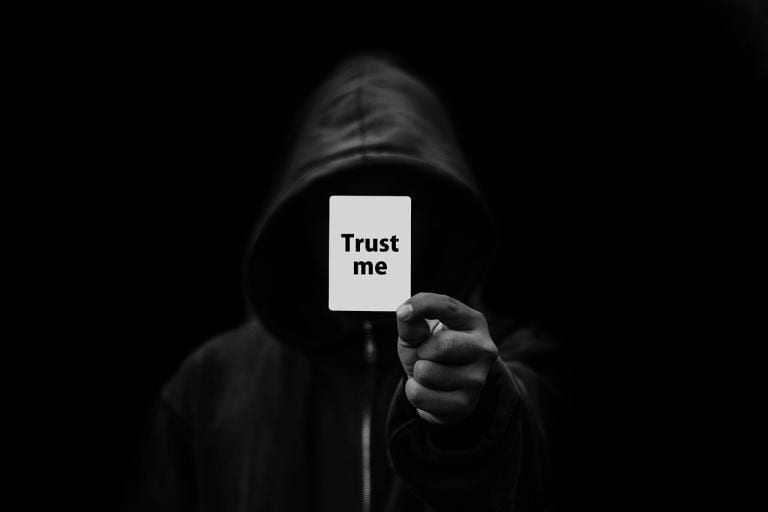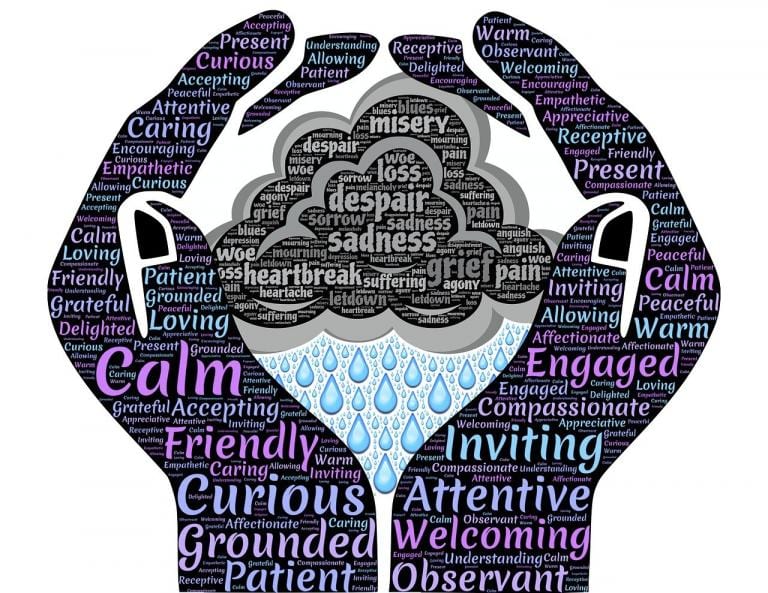Psychology teaches that every human being has a “dark side.” This “darkness” is known as the “Shadow Self/Aspect”. A hidden repository for primitive impulses and emotions most people prefer to ignore or deny. Shadow Work is a method of inner-reflection which helps an individual to acknowledge, heal and bring those hidden parts of ourselves into balance.

Shadow Work Encourages Knowing Ourselves
Carl Jung coined the term “Shadow self” as part of a psychological concept to describe human personality. The Shadow is the Unconscious self (Id) which the Conscious self (Ego) does not identify within itself. The Shadow exists outside of the Conscious self, with character traits, behaviors, and attitudes which influence behavior.
However, this “dark side” is also effected by experiences which occur throughout our lives. As a result, this can create beliefs held deep within our subconscious. Many attitudes and behaviors which are deemed “negative” originate from the Shadow. This can include anger, jealousy, anxiety, addiction, etc.
Here’s the thing. As negative, difficult, or undesirable as these emotions/traits can be, The Shadow is still a natural (albeit hidden) part of our psyche. Through Shadow Work, we have an opportunity to uncover the mystery, which in turn helps our conscious self to recognize and embrace our whole being.

Shadow Work Acknowledges Inner Darkness
As Carl Jung said, “There is no light without shadow. No psychic wholeness without imperfection.” When we acknowledge our Shadow self, we have the ability to heal wounds, manage negative impulses, express feelings in a healthy manner and find balance.
As a Witch, I’ve found Shadow Work to be very beneficial. In my experience, through this type of self-examination there is less opportunity for an unconscious issue to crop up while doing spellwork, allowing greater focus and clear intention.

Shadow Work WILL Be Painful
Shadow work should not be rushed. Deal with one issue at a time as it’s made known. Make sure you have a good support system with whom you can talk through difficult emotions. Do not undertake this type of self-reflection if diagnosed with or experiencing an unaddressed mental health issue.
Shadow work is not easy. If you decide to proceed, be kind to yourself. Taking a deep look into one’s unconscious self is painful. So, if you are dealing with a stressful situation (moving, new job, death in the family, etc.), then wait until life is more settled.
Additionally, for those with a strong religious framework of “evil”, it may be best not to attempt Shadow work. Why? Delving deep into one’s psyche can uncover things which (especially in a strong religious framework) may cause a person to believe themselves to be “evil,” “wrong”, or “bad.” This is not the point of the exercise and could be emotionally/spiritually harmful.
Do not try to tackle all the issues you have recognized within yourself in one fell swoop. Shadow work will dredge up related issues, so make a note to deal with those later. Shadow work is a self-reflective practice which can be re-visited as needed, over time. As human beings, we are always moving forward (or should be) and shadow work can be a way to process difficult emotions, habits, or experiences throughout adult life.
Be honest with yourself. The point of shadow work is to recognize traits within your personality which you dislike (or even hate). The goal at the end of Shadow work is to be able to love yourself regardless of those difficult inner aspects, recognize how they came to be, then do what is necessary to accept, heal and move forward.

Basic Methods of Shadow Work
Journal — Choose one part of your shadow you want to acknowledge and work through. This can be a free-associated method. Ask yourself a series of questions “Why do I do…” and answer them honestly. Keep digging deeper with those questions, examine how you feel about it, until you get to the root of the issue. Take your time.
Meditation and Visualization — Use the same process as above but within a safe space in your mind/imagination. This can be done in state of trance or self-hypnosis if creative visualization is difficult for you. One possible suggestion is to talk to your “shadow” about these issues you wish to address.
Memory Regression — This is a method which should be done with a skilled hypnotist or licensed therapist who can help you remember a traumatic incident or period in your life and help you work through what happened and how to heal. Do not attempt shadow self memory regression alone.
Re-enactment/Performance — Act out (in a symbolic way) your bad behavior/habit, or what you do not like within yourself, to call up the emotions and then wrestle and deal with it in honest recognition. Ecstatic dance, drumming, or vocalizations (singing, shouting, etc.) can assist with this process by focusing on these “inner demons” and releasing them.

















